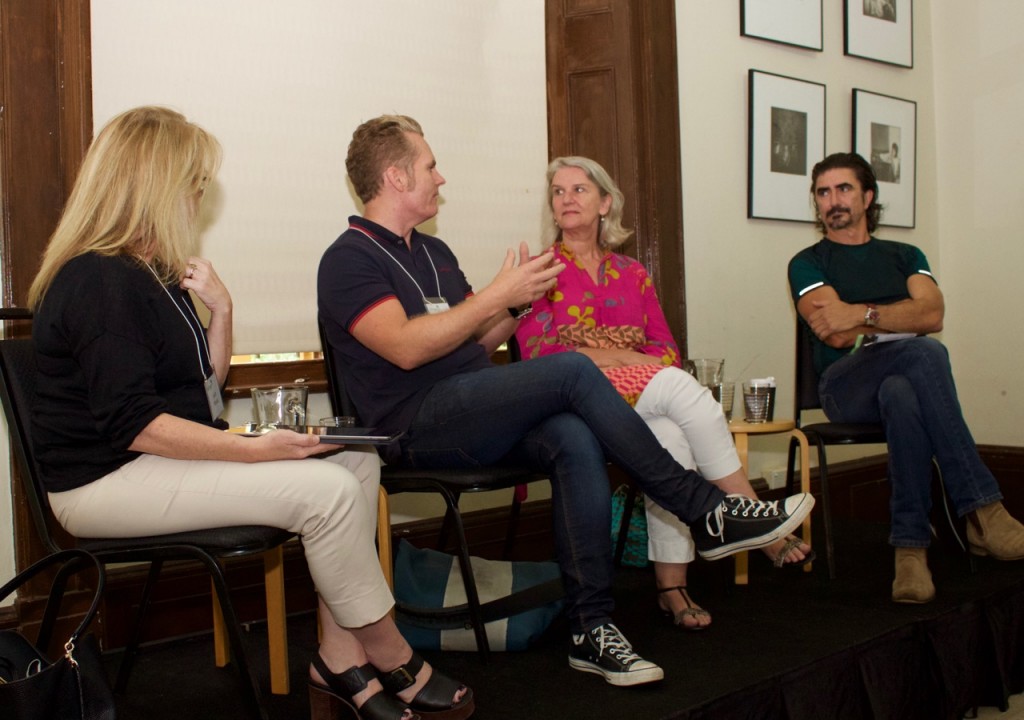Have you ever wondered what goes into getting a good book review? Judith Whelan, a former editor for The Sydney Morning Herald, interviewed a panel of three industry insiders at the recent Creative Non-Fiction Festival to inquire about what reviewers like, how they best like it served, and how an author can go about getting their book reviewed at all.
Stephen Romei, literary editor and film critic at the Australian, defines the purpose of book criticism as letting the readers of a paper (or other platform) know about good books and writing. The main goal here is to draw their attention to some more obscure writers they might not know, as well as assist in providing a guide for the reader of upcoming titles.
Of course, the main point of challenge for an author hoping to get their book reviewed remains to be the selective process. So how exactly are books chosen for review?
Literary editor for the Herald, Susan Wyndham, feels a responsibility to favour Australian writers over international writers, a testimony which is supported by the entire panel. The author’s notoriety will also factor into the decision, debut Australian novelists more likely to receive coverage over authors who have already made a name for themselves in the market, and can sit comfortably with the knowledge that someone will pick up their latest release.
“Like Susan, I get about 200 books a week and get to review about 20,” Romei says. “Australian writers come first in my mind. When you’ve got all these Australian writers you want to cover, the room for other more prominent writers becomes less and less for getting a review.”
Award-winning writer and critic, James Bradley, says that he reads the book first: “I try as much as I can if it’s a writer I know—I wouldn’t accept a review for a writer with a huge backlist.”
The selection process for when it comes time to choose the right reviewer for a book is perhaps just as arduous of a task.
“I think reviewing is subjective, no question about it,” Wyndham says. “There are very different ways of seeing a book. You have to try and find someone who not necessarily will love it, but will be sympathetic to its purpose. We’ll sometimes be looking for new, young writers with a fresh outlook. It really is a matchmaking process.”
As for what large publications aren’t looking to review at the moment:
“We’ve squeezed out the self-help genre,” Wyndham says. “There’s a lot of commercial fiction that we are a bit sniffy about. We make the decision that it has its readership who won’t care that we leave it out.”
Stephen supports this claim, adding that the Australian avoids reviewing mainstream and kids books mostly.
“We like a book that looks professional and well produced,” Wyndham says when asked about what an author can do to help improve their chances of receiving a review. “My assumption is that if it looks a bit rough, the writing is a bit rough and probably hasn’t been edited either.” This, she adds, leaves the impression that it is most likely not worth the consumption or review, and that a good cover will make your book leap out. “Unless a book is under our noses, we don’t tend to consider it seriously.”
“Sending in a physical copy of the book is important,” Stephen affirms. “Blurbs work—but it depends on the name on the book. It’s certainly worth it if you can get someone we know and respect to review your book.”
Recap by NSW Writers’ Centre intern Monica Quintal.

